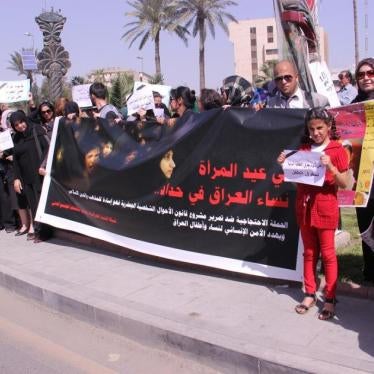This month, after years of activism, Kuwaiti women’s rights activists won a new law establishing protections against domestic violence. The need for this law was underscored on September 9 when Fatima al-Ajmi, aged 35 and pregnant, was shot repeatedly and killed, reportedly by a family member for marrying a man outside of her family’s community. Her killer had reportedly threatened her before.
In 2019, I spoke to nine women in Kuwait who described facing abuse from family members and husbands. They said they were either scared to go to the police or were turned away when they did. One hundred and fifty-five countries have legal protections against domestic violence, but until now, Kuwait had no explicit law setting out protection measures against domestic violence, or even shelters they could go to. Some laws, like article 153 in Kuwait’s Penal Code, even provide men with reduced sentences for killings of women found in the act of adultery.
On September 20, Kuwait began catching up to the global norm and issued a new Law on Protection from Domestic Violence, after the National Assembly passed it on August 19. The law creates a national committee – with representatives from different ministries and civil society – to draw up policies to combat and protect women from domestic violence. The committee will also submit recommendations to amend or repeal laws that contradict the new domestic violence law. The new legislation also establishes shelters and a hotline to receive domestic violence complaints, provides counseling and legal assistance for victims, and allows for emergency protection orders (restraining orders) to prevent abusers from contacting their victim.
However, the new law has serious gaps. While it provides penalties for violating protection orders, it does not set out penalties for domestic violence as a crime on its own. It also does not include former partners or people engaged in relationships outside of wedlock, including those engaged to be married or in unofficial marriages.
As the tragic killing of Fatima al-Ajmi has shown, these long-awaited protections are crucial. Kuwait’s real test will be ensuring implementation of its new law, filling remaining protection gaps, and emphasizing prevention, including by repealing discriminatory laws that leave women exposed to deadly violence.
|
Dispatches
Domestic Violence Law Signals Hope for Kuwait’s Women
Government Should Implement Legislation, Address Gaps in Protection for Victims
Your tax deductible gift can help stop human rights violations and save lives around the world.
Region / Country
Most Viewed
-
June 3, 2025
“They’re Ruining People’s Lives”

-
January 25, 2024
“We’re Dying Here”

-
November 25, 2019
A Dirty Investment

-
April 27, 2021
A Threshold Crossed

-
November 19, 2012
Losing Humanity






